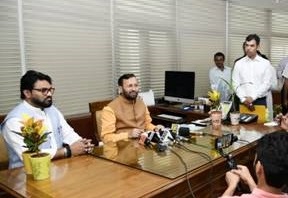The last few years have seen substantial interest in artificial intelligence (AI) and automation technologies because of their massive potential to reinvent decision making, catalyze innovation, and unlock new opportunities.
The ambiguity caused by the COVID-19 pandemic has further made it clear that organizations with robust data and insights are uniquely positioned to predict market behavior and navigate the disruptions with speed. For many organizations, AI has become a business necessity rather than an option. (See: How will AI impact enterprise ecosystems in 2021?)
According to a report by consulting major PwC, sectors that have faced the most disruption in the last year due to COVID-19 have embraced AI more definitively. According to the report, travel and hospitality (89%) have taken the lead in AI implementation, followed by TMT (86%), financial services (82%), and healthcare and pharma (73%).
Ushering into an AI-focused era
The fast-evolving digital-first environment has helped businesses and individuals generate tonnes of data. According to the industry estimates driven by the increasingly digitized culture, the world’s data could grow up to 180 zettabytes in the next five years. That’s gigantic! However, without any meaningful insights, this data is dumb and has no real value. Technologies like AI can turn these tonnes of data into a treasured trove and help enterprises tackle complex problems and reinvent decision-making processes.
Several companies have taken concrete steps to deploy AI-based frameworks in their organizational ecosystems. With robust analytical and algorithm capabilities, businesses are better equipped to identify market trends, discover anomalies, and focus on continuous improvement. With AI, enterprises can estimate a consumer’s historic purchase value, the specific challenges a user faces, and their preferences for a product or service.
Specific tasks hold mammoth value; however, accomplishing these tasks also requires heavy resources. In addition to providing valuable insights for better decision-making, AI-driven tools allow business leaders to automate critical processes and free-up the time of their resources, and utilize them more effectively.
Helping organizations manage disruptions
As we dwell in the future, the meaningful insights extracted by AI will empower many enterprises to make efficient and quick decisions, stay competitive and provide an exceptional customer experience.
For instance, Vodafone is one of the first telecom operators to implement AI in its entire business value-chain. Since 2016, Telco has been working meticulously to build a strong team of data analysts to leverage AI algorithms for obtaining relevant insights and data sets to deliver better network quality and effectively run their business.
In 2019, the UK-headquartered telco expanded the AI-scope. It launched an AI framework to deploy AI across its business ethically and safeguard its customers from inadvertent consequences of using ML techniques. With over 400 million customers worldwide, Vodafone’s AI-focus helps it take adequate measures and build strategies to understand its customers better and deliver superior network services. Ai-capabilities enable the telco to predict system failures/downtime proactively and provide quality insights on areas where it focuses more on network capabilities. Its AI-based TOB-i chatbot handles customer queries and ensures faster resolutions.
Across the world, the public sector and government bodies have also started to leverage AI’s potential. In 2021, these efforts are likely to gain further traction. Governments worldwide have been testing and deploying AI-based analytical solutions to track fraudulence in tax reporting, managing disasters, and monitoring borders. The insights offered by AI help governments predict possible threats and enable them to make the right decisions to secure their borders.
Another area where the potential of AI has been widely tested is Oil and Gas exploration. Last year, the scientists and experts of Wadia Institute of Himalayan Geology (WIHG) discovered a new AI technique to examine seismic wave data that could help government explore hydrocarbons such as oil and natural gas speedily and efficiently.
These are some of the examples where AI is helping reinvent enterprise decision-making and optimizing operations. The accelerated adoption of AI is likely to pick more pace in 2021 as businesses across all sectors would continue to focus on predicting the concerns and making informed decisions.
At Better World, we’ve covered AI and its impact on various industries and sectors. The links to some of the most insightful coverage around AI are shared below. We hope you’ll find it interesting.







0 Comments